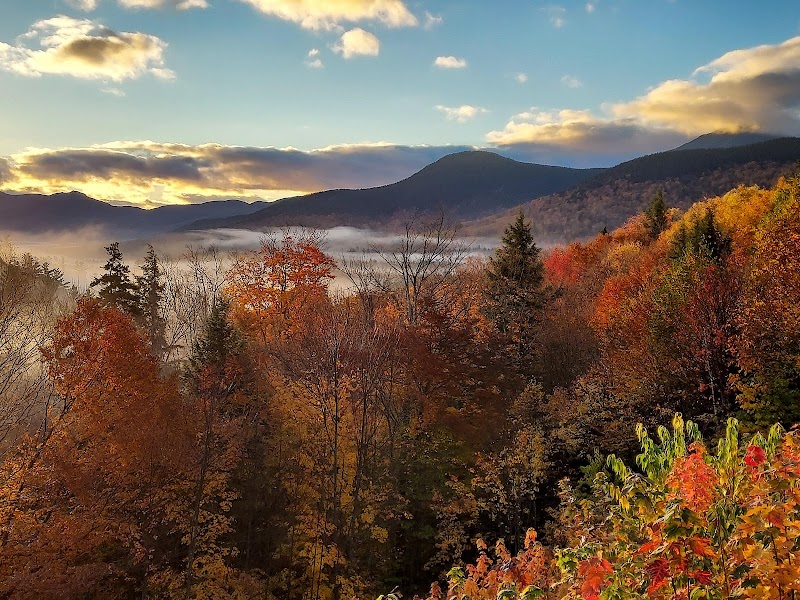
Experience the Casco Bay Lighthouse Festival in Portland, ME, where coastal adventure meets rich maritime history. From hiking rugged trails to exploring lighthouses by boat, this festival delivers an immersive and practical coastal journey ideal for all adventurers.
Wear Sturdy Footwear
Trails around lighthouses feature rocky, uneven surfaces prone to slipperiness from sea spray and moss. Shoes with good grip reduce the risk of falls.
Hydrate Regularly
Even though coastal air can feel cool, hiking while carrying gear and negotiating rocky paths demands regular water intake to keep energy and focus sharp.
Book Boat Tours Early
Popular tours reach multiple lighthouses quickly but have limited capacity—reserve your seat in advance to avoid missing out, especially on weekends.
Check Weather Before You Go
Coastal weather is notoriously changeable. Dress in layers and prepare for wind, rain, or sudden temperature drops, especially in fall.
Guiding the Glow: Exploring the Casco Bay Lighthouse Festival in Portland, ME
Each fall, Portland, Maine, ushers in the Casco Bay Lighthouse Festival — a vibrant celebration that invites adventurers and history buffs alike to engage directly with the coastline’s maritime guardians. This multi-day event marries the thrill of exploration with practical access to some of Casco Bay’s toughest-to-reach lighthouses, transforming these towering guides from distant silhouettes to tangible destinations.
Starting from Portland, the festival energizes the coast with boat tours, lighthouse tours, and on-foot excursions that traverse rocky paths and forested inclines. The lighthouses, each fiercely steadfast against Atlantic tides, dare visitors to approach their rugged bases and peer into histories shaped by light and storm.
Expect a range of terrain — from gentle waterfront promenades to sharper ascents on uneven rock. Distances vary depending on the lighthouse visited; guided boat tours cover multiple sites within a day, while onshore hikes to landmarks like Spring Point Ledge Lighthouse span roughly 3 miles round trip, with moderate elevation changes that challenge without overtaxing. Trails are weathered and natural, demanding sturdy, non-slip footwear and attentive footing.
The festival also delivers rich maritime lore, local crafts, and freshly caught seafood, all embedded in the salty breeze. Nature here acts intentionally — waves push forward with relentless urgency, winds sieve through pine boughs as if whispering age-old secrets. Timing your visit to early October offers cooler temperatures and lighter crowds, making the experience rewarding yet manageable.
Preparation is key to enjoying the lighthouse routes fully. Water and layers are essentials; Maine’s coastal weather shifts swiftly, and hydration supports your journey through every rocky step. Early bookings for boat tours secure spots, particularly on weekends when the festival draws peak visitors.
The Casco Bay Lighthouse Festival encapsulates adventure that respects its environment — a space where hikers and history intertwine without haste. It’s an accessible challenge, a call to encounter the lighthouses not as static relics but as living beacons, standing fiercely through the tides of time.
Nearby Trips
All Adventures
Boat Charters
Water Activities
Adventures near Portland, ME
Discover the unique and memorable adventures that make Portland, ME special.
Frequently Asked Questions
Are the Casco Bay lighthouses accessible year-round?
Most lighthouses are accessible year-round but with limited service and accessibility during winter months. The festival in early fall provides the best opportunity for open tours and boat access.
Can I hike to all the lighthouses during the festival on foot?
Not all lighthouses are connected by trails accessible on foot. Some require boat transportation arranged during the festival, while others like Spring Point Ledge Lighthouse are reachable by walking from nearby areas.
What wildlife might I encounter around Casco Bay during the festival?
Look for ospreys diving over the water, seals basking on distant rocks, and migratory shorebirds navigating the rugged coastline, especially in spring and fall.
Is it safe to hike trails along the coast during the festival?
Yes, with proper footwear and attention to footing. Trails can be slippery with moss or wet rocks, so caution is advised. Stay on marked paths and be mindful of tidal changes near shorelines.
What are some lesser-known viewpoints featured in the festival?
The Hidden Cove overlook and Battery Steele viewpoint offer quieter spots with sweeping vistas of the Bay and lighthouses, perfect for those seeking solitude away from the main crowds.
Are there opportunities to learn about lighthouse history during the festival?
Absolutely. Festival programs include guided tours, museum exhibits, and talks detailing the lighthouses’ role in maritime navigation, shipwreck histories, and community heritage.
Recommended Gear
Hiking Shoes with Good Traction
Provides stability on rocky and uneven coastal and trail surfaces, reducing the risk of slips.
Layered Clothing
Offers adaptability to changing coastal weather with wind and temperature shifts.
Water Bottle or Hydration Pack
Hydration is critical to maintaining energy and safety during hikes and boat trips.
Compact Rain Jacket
Protects from sudden spring showers and coastal mist without adding bulk.
Local Insights
Hidden Gems
- "Battery Steele viewpoint, a WWII coastal defense site offering compelling echoes of history beyond the lighthouses."
- "Small tide pools near Bug Light Park revealing intricate marine ecosystems."
Wildlife
- "Harbor seals lounging on nearshore rocks"
- "Migratory shorebirds including sandpipers and plovers"
- "Ospreys fishing in Casco Bay’s waters"
History
"Casco Bay’s lighthouses, many constructed in the 19th and early 20th centuries, served crucial roles guiding vessels through the tricky Atlantic currents and rocky shores. The festival highlights this ongoing legacy by opening areas generally closed to the public."
